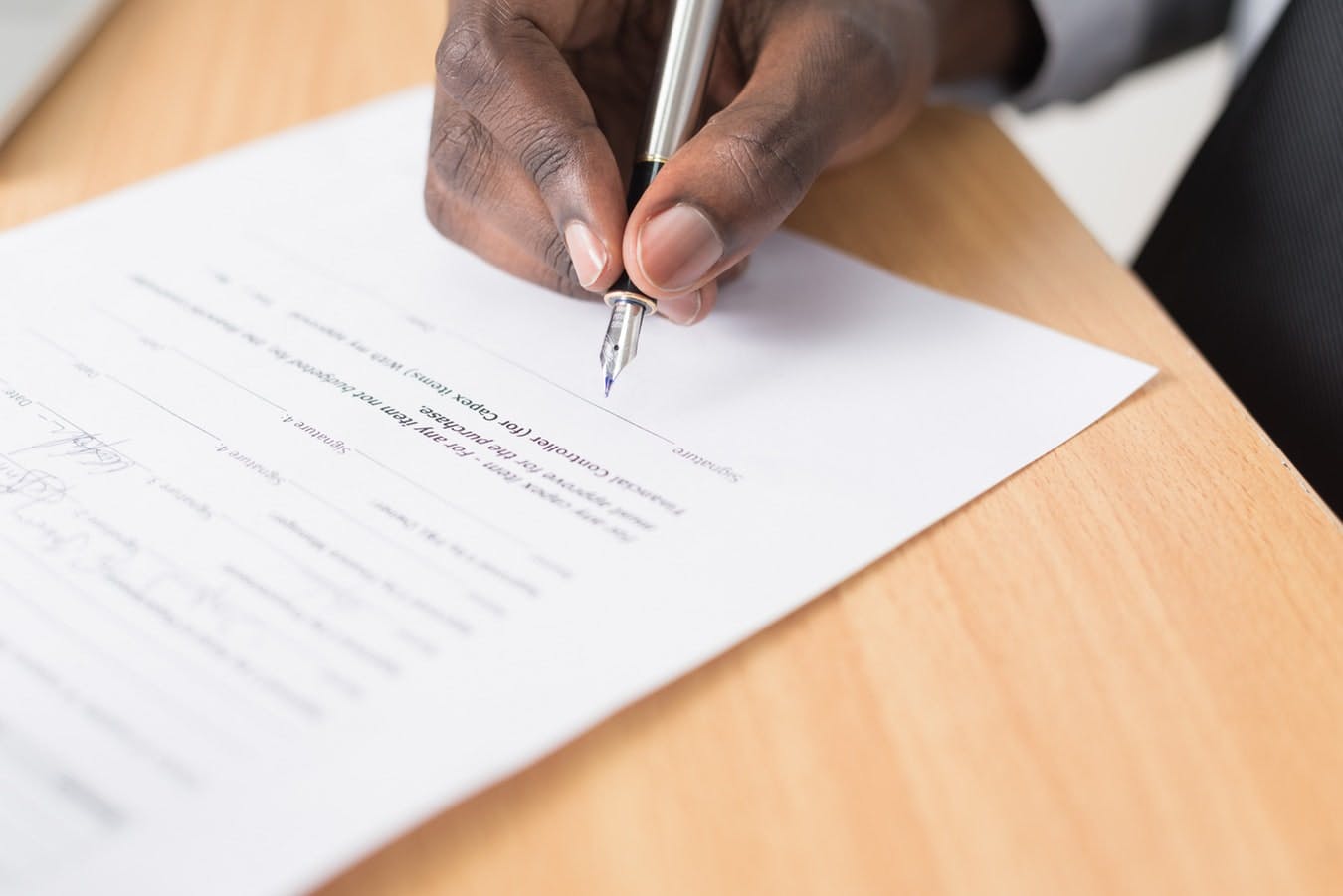
Larceny, robbery, stealing, theft—these words are commonly lumped together into one big category that involves someone taking something that isn’t theirs. But did you know that each of these words is technically a separate act with its own definition? Theft is widely known as an umbrella term that covers all types of stealing, and the other acts—larceny, robbery, burglary, and many others—are more specific forms of stealing. For example, burglary and robbery involve stealing, but that’s not all. In order for a theft to be considered a burglary or a robbery, it must involve excessive force by another person.
So what exactly is larceny? While the definition of larceny differs a bit from state to state, it is specifically the theft of personal property in the absence of physical force. Because it involves stolen property, larceny is a crime against possession. It does not matter if someone steals another person’s property for a long or a short time; taking someone else’s belongings with the intent to deprive them of their possessions is a crime.
Criminal charges for larceny can be categorized as either a felony or misdemeanor depending on the price of the stolen property. A misdemeanor charge is less severe than a felony. The consequences for each criminal charge vary from case to case, but felony charges could lead to jail time. The amount of stolen property that leads to each charge differs by state, so you’ll have to look up the values for your state if you’re interested. Let’s take a look at the numbers Utah to get an idea of how the categories of larceny work.
- Class B misdemeanor larceny: the value of the stolen property is less than $500
- Class A misdemeanor larceny: the value of the stolen property falls between $500 and $1,500
- Third degree felony larceny: the value of the stolen property is between $1,500 and $5,000
- Second degree felony larceny: the value of the stolen property is $5,000 or more
For any person to be charged with larceny, it must be proven beyond reasonable doubt that they actually stole and were in possession of the property in question. If it can’t be proven that they stole your property, they might not be found guilty of any crimes.

How do I Report Stolen Items?
If you are a victim of larceny—that is, if someone has stolen some of your personal property—you need to file a police report. The first and most important thing in this situation is to make sure that you are safe. Call the police, and if there is any chance that the person who stole from you could still be around and that they could cause you any sort of physical injury, you need to immediately remove yourself from the area. Your safety is the number one priority.
Once you have established that the environment is safe, you will need to identify everything that was stolen from you. The police officers that work with you can help you with the ins and outs of filing a police report to document your stolen property. Once you’ve finished the police report, be sure to take down the number of the report so that you can have it as a reference whenever you may need.
It makes sense to report a large, expensive item of personal property that were stolen from you, but what if a thief took inexpensive or small items? Even if your stolen property isn’t worth a huge amount of money, it is still a good idea to report the theft to the police. Filing an official police report is a smart move for any act of theft or larceny, big or small.
Depending on what was stolen, you might also want to contact your insurance company. Take pictures of any property that was damaged and take note of items covered by your insurance that were damaged or stolen. You can help speed up the insurance coverage process by providing any pictures you have of the things that were stolen, by taking note of where you purchased everything, and by recording how much everything that was stolen cost. If you happen to have any receipts from when you purchased the stolen items, your insurance company will want copies of those.
If there are repairs you need to make immediately, like if someone broke the window of a motor vehicle you need to use to get to work each day, chat with your insurance company about getting the repairs covered. It is likely they will want you to proceed with getting things fixed right away, but that they’ll also want you to keep your receipts so that they can reimburse you once your claim is filed and processed.

Did I Wait Too Long to Report Something as Stolen?
Maybe something was stolen from you a long time ago and you didn’t think anything of it, but now you regret that you didn’t take any action at the time. Maybe you only recently noticed something was stolen from you, and you have no idea how long ago the theft took place. In either case, how late is too late to report the larceny to the police and your insurance company?
Reporting to the Police. Just as each state has its own specific definition of larceny, each state is allowed to establish its own statutes of limitations. Statutes of limitations lay down the law and clearly state the maximum amount of time that can pass before a criminal charge can no longer be investigated by the police. Different degrees of crime have different statutes of limitations. Let’s take a look at the statutes of limitations for larceny in Utah.
- Misdemeanor larceny: two years to report the larceny and have it investigated
- Felony larceny: four years to report the larceny and have it investigated Some items or services that have a four year statute of limitations for larceny include the theft of firearms, motor vehicles, and theft of services. If these items are stolen from you, there is a chance that the thief will receive a fine and will be sent to prison, should you choose to press charges. Remember, though, that these time frames differ by state. If you have questions about what the statutes of limitations are where you live, a quick Google search or phone call to your local government office will help you find all the answers that you need.
While a window of two or four years may seem like a nice cushion to report a theft, it is still best to report the incident as soon as you can. Waiting to report larceny can make it harder to find the person who stole from you, and that can make it harder to recover your stolen property. If you decided not to report a theft that happened a while ago and then changed your mind, however, having that window of time can be a big benefit to you.
Reporting to Insurance Companies. The time frame for reporting larceny to insurance companies depends so heavily on the insurance provider and the type of insurance coverage that it is difficult to say what the averages are. Some insurance companies require their users to file an insurance claim for theft within 72 hours, while other companies do not put a specific timeline restriction but instead state that theft must be reported “as soon as possible.”
Calling your insurance agent or checking your insurance policy are the best ways to find out what restrictions you have for reporting larceny to your insurance company. Your agent will also be able to answer questions about how to file a claim and what information your insurance company will need for proof of purchase and proof of theft.
It is worth noting that most insurance companies will want you to file a formal police report to accompany your insurance claim. Though your insurance company may not require a police report, having one will help to speed up the process of getting you reimbursed for any property that was taken from you.

Is Finding Something the Same as Committing Larceny?
It is legal to take temporary possession of someone else’s lost property as long as you then do everything you reasonably can to find the actual owner of the property. The possessor of the lost property has the ability to take hold of and sometimes even use that property until the owner came forward to claim the lost item. Though possession and ownership are connected terms, in this situation it is important to realize that there is a difference between possessing a lost item and having ownership of the lost item. There are a lot of technical legal definitions that differentiate between possession and ownership, so here is a quick summary.
Possession. Possession is essentially having physical control over an object, but it is not necessarily actually owning the object. If you find a very expensive mountain bike abandoned on the side of the road and you decide to take it home so you can try to find its owner through social media, you are temporarily in possession of that mountain bike. You do not own it, but you do have physical control over it for the time being. It is lawful to be in possession of something that isn’t yours as long as you found it and are taking reasonable steps to find the real owner of the property. Possession is seen as a temporary state of being.
Ownership. Where possession is temporary, ownership is more permanent. It involves having legal rights and proof that an object belongs to you. Ownership is often referred to as the legal right to own any piece of property, tangible or intangible. So going along with the example of the lost mountain bike, the finder of the lost bike could have ownership of it after doing everything reasonably in their power to locate the owner. If the owner of the bike came forward, the person who found it would need to surrender it to the real owner. So what are some steps that you can take to try to find the owner of lost property? The possibilities are almost endless, but here are a few ideas. We’ll stick with the mountain bike idea to make it a little simpler.
- Post about it on social media. With the sharing capabilities of different social media platforms, it doesn’t take a lot for a post to go viral. This might be one of the easiest ways to get in contact with a lot of people, but it also comes with risks and drawbacks. There are dishonest people in the world who might want to lie and say that the bike is theirs. For this reason it might be better to create a post only saying that you found a bike rather than posting a picture of it. Anyone claiming to be the owner would then need to provide you with a description or maybe even photos of the bike to show their ownership.
- Put an ad in the newspaper. Not everyone reads the newspaper these days, but it’s still a great way to spread the word about news and information. Placing an ad in the newspaper comes with similar risks as posting about it on social media. You would need to take care that the people who contact you about the lost bike were not lying and trying to steal it from you.
- Contact the police. There is a possibility that the owner of the bike contacted the police to report their property as missing.
- Ask around in the area where you found the bike. If it was off to the side of the road in a neighborhood, chances are that it belongs to some kids who live in one of the nearby houses. If you found it on the side of the road of a busy interstate, this option would obviously be less likely to yield any results.
By taking reasonable steps like these to find the owner of the property that you found, you will not be considered as stealing anything. For this reason, finding something is not quite the same thing as committing larceny.

How Can I Protect My Belongings?
Now that you know more about what larceny is, let’s discuss what you can do to keep your belongings safe from people who might want to steal from you.
Home Security. One of the best ways you can protect your personal belongings from theft is to have an excellent home security system. Since home is where people keep most of their stuff, it’s an obvious target for those who are looking to steal something. Home security encompasses everything from door locks and window bars to cameras and motion detectors, and it is essential if you want to keep your belongings safe. Make sure you lock your doors and arm your security system each time that you leave the house. As long as there are people in this world there will be thieves, and home security is one of the best ways to keep unwanted people out. With security cameras around your home, even if someone does manage to get past your locks and alarms you can at least do all that you can to catch them on camera.
Don’t leave your belongings unattended in public. Leaving valuables unattended in public falls just short of asking someone to sneak in and take your things while you are gone. Let’s say you went to a cafe to work and decided to leave your laptop at the table while you take a break to go to the restroom. This would be the perfect opportunity for someone to walk past your table, steal your expensive laptop, and leave before you come back. Even if you are only stepping away for a moment, taking your belongings with you will significantly reduce the risk of them being stolen.
Keep track of your keys and garage door openers. Keys and garage door openers are the easiest way into a home. If you have a garage door opener in a car that you park outside, consider hiding it in your console instead of placing it in plain view on your sun visor. This will decrease the chances of passersby being tempted to break into your car and steal the garage opener to later access your home. Keep your keys in a safe place so that you always know where they are. Similarly, keep track of who you give keys to your house to. Make sure that they are people you can trust, and periodically check in with them to make sure that they still have their key.
Keep your purse and wallet close. Purses and wallets are easy items of personal property to snatch. Make sure that your purse is closed and that it is close to your body when you are out in public. Avoid placing your wallet on the table where it can be swiped by a passerby. Should your purse or wallet get stolen, be sure to call your credit card companies to cancel all of your cards. That way you’ll only lose your drivers license and whatever cash was in your wallet.
Invest in a home safe. Combination safes are the perfect place to keep valuables away from thieves. Without knowledge of the combination, a person has to be pretty good at cracking locks to get into your belongings. Protecting your home from larceny is easy with the help of smart home security tools. We know a lot about home security at Cove , so if you have any questions about how home security tools can help keep your belongings safe, please reach out to us.

